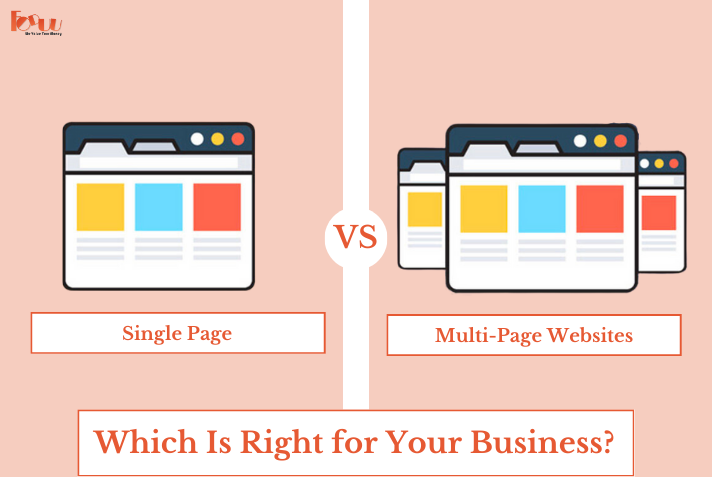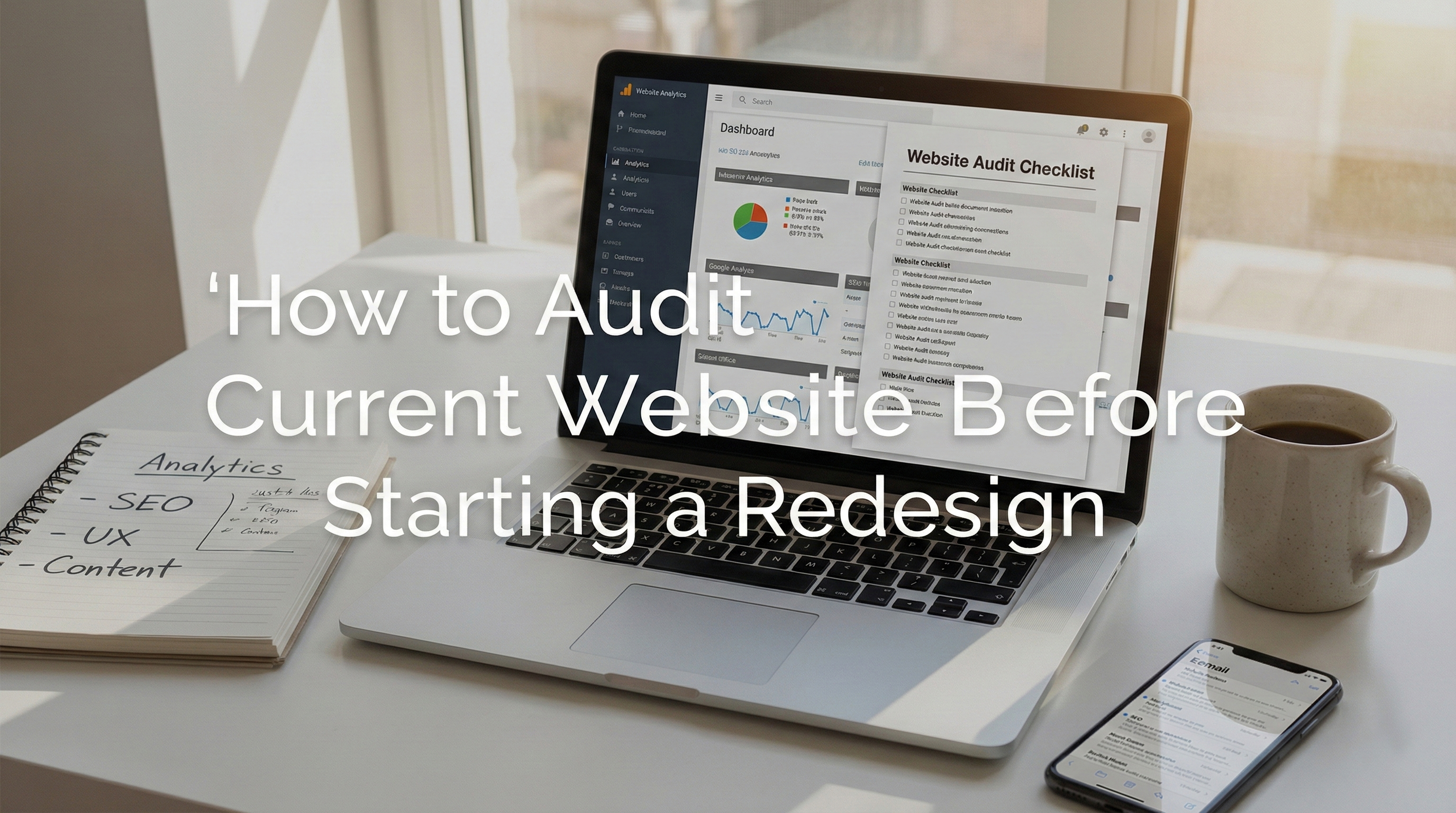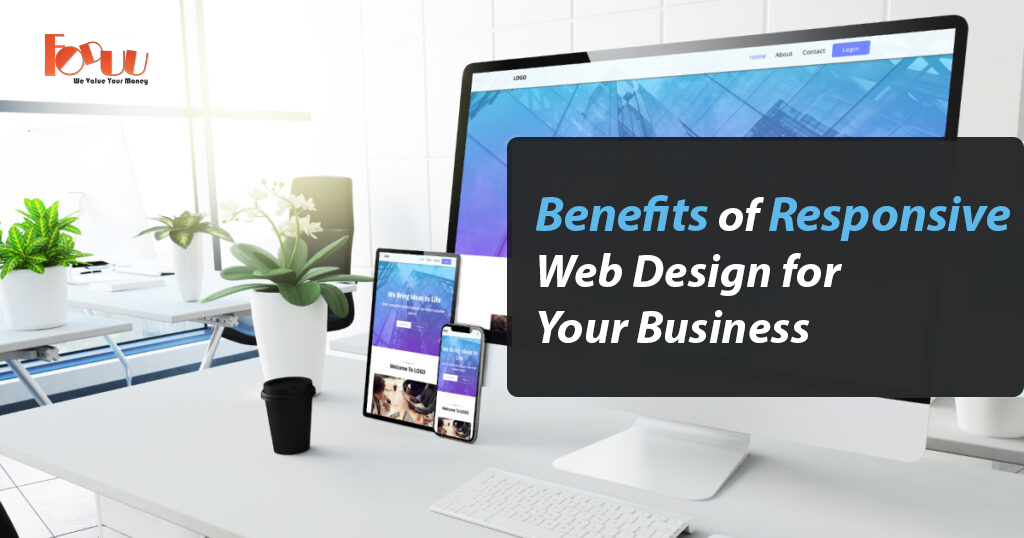Making the best website structure decision is crucial in the digital world. Single-page websites provide streamlined user experiences and quick page loads, making them perfect for material that is narrowly focused. They might, however, be shallow and have SEO difficulties. On the other hand, multi-page websites can be more challenging to navigate but offer scalability, strong SEO skills, and compartmentalised information.
To make a choice, take into account your business objectives, target audience preferences, and content depth. Single-page websites are fantastic for concise messaging and product displays, but multi-page websites shine when it comes to in-depth material and a wide range of products. Consider SEO requirements; due to their hierarchical structure, multi-page websites tend to rank higher.
For ideas, look into case studies. Apple's new launches serve as an effective example of single-page websites' effectiveness, while multi-page websites like Amazon show the value of segmentation.The optimal strategy for your needs may ultimately be a hybrid one that combines the advantages of both styles. Your choice will be improved by A/B testing and user feedback. Your website can be a potent tool for attaining your company's goals if you give it some careful attention.
What is Single Page Website:
Website designs that consist of just one vertically scrollable page with all material contained therein are known as single page websites. In contrast to conventional multi-page websites that feature distinct pages for each section, a single page website presents all the content in a unified, uninterrupted style.
-
One-page websites are renowned for their simplicity. They avoid superfluous or cluttered features in favour of providing important information succinctly and simply.
-
Users only need to scroll down the page to access different areas or content—rather than going to different sites. The user experience is smooth and simple as a result.
-
Websites with just one page usually offer few navigation choices. They frequently have a fixed menu or navigation bar that lets visitors get to particular parts of the page.
-
Presenting a targeted message, good, or service is one of their strong suits. For companies or initiatives with a single, distinct goal, this straightforward strategy works very well.
-
Single-page websites are intended to lead users through a particular story or call to action. They frequently include components to increase user engagement, such as eye-catching graphics, interactive features, and obvious call-to-actions.
-
Single-page websites are mobile-friendly by nature because of their simplicity and condensed information. They offer a smooth experience to users across several platforms, such as tablets and smartphones.
Advantages of Single Page Website:
Speed and Simplicity:
Users can navigate single-page websites with ease and focus.Without having to go through several pages, users may quickly locate the information they require.This minimalism speeds up download times and lessens the possibility that users may get confused or overwhelmed.
Engagement:
Single-page websites are an efficient way to lead visitors through a specific message or call-to-action with a clean and linear style. Because there are fewer distractions and an obvious path to follow, this streamlined method can result in better levels of user engagement.
Mobile-Friendly Design:
Single-page websites look great in an age where mobile browsing is commonplace. Because of their inherent mobile friendliness, users of smartphones and tablets have a great experience with them. By doing this, you can be confident that your website will work and look great on many types of devices.
Storytelling & Narrative:
Businesses or projects that have an interesting tale to tell are best served by one-page websites. They make it possible to present information in a sequential fashion, which is very useful when telling a story, illustrating the path of a product, or showcasing a portfolio.
Concentrated Call-to-Action (CTA):
You can direct visitors wherever you see fit because there is just one page to navigate. This makes it simpler to create and execute a call-to-action that encourages people to buy something, subscribe to a newsletter, or get in touch with your company.
Lower Development Costs:
Developing a single page website is usually less complicated and takes less time than developing a multi-page website. They may become less expensive to build as a result, which appeals to companies with tight budgets.
Disadvantages of Single Page Website:
Limited Depth of Content:
One-page websites may find it difficult to offer comprehensive details about a company, good, or service. The quantity of content that can be included is limited when it is all contained on one page. This could be a disadvantage for companies that offer complicated products or services or that need a lot of information.
SEO Difficulties:
Single-page websites may present additional difficulties for search engine optimisation, or SEO. It could be more difficult to target a large variety of keywords because there is less content and metadata. This may decrease organic traffic by making the website less visible on search engine results pages (SERPs).
Complexity for Diverse Offerings:
Presenting and organising everything on a single page might be difficult if a company offers a large variety of goods, services, or information. This may make the user experience confusing or overpowering, which could drive users away from the website.
Traversal Problems:
Even though single-page websites offer easier access, improper organisation can make them troublesome.Users could have trouble finding specific content on the page if the internal links or navigation menu are poorly designed.
Scalability Issues:
A one-page website could become restrictive when a company develops and offers more services.It might need to be redesigned or converted to a multi-page format if it doesn't offer enough room or structure to support more goods, services, or content.
Difficulty in Analytics Tracking:
Analytics tracking can be challenging because it might be more difficult to monitor user engagement and behaviour on a one page website. Advanced analytics tools and approaches may be needed to discover specific user interactions or determine which areas work best.
What is Multi-page website:
Multi-page websites are a kind of web design that are made up of several linked pages, each devoted to a different subject, good, or service. Multi-page websites have a hierarchical structure that, in contrast to single-page websites, enables a thorough investigation of a company or organisation.
-
The separation of material into several pages is a defining feature of multi-page websites. Every page of the website is devoted to a different facet of the company, including contact, about us, services, and products.
-
They give you plenty of room to display comprehensive details about different aspects of a company. This can include company background, service offerings, product details, customer testimonials, and more.
-
Businesses that have more than one page can target a wider variety of keywords and phrases, which increases their visibility on search engine results pages (SERPs). For particular search searches, each page can be optimised.
-
A multi-page website gives an organisation the freedom to grow as it does by allowing for the addition of new sections or pages. This makes it possible to add more content, services, or products without overburdening the current framework.
-
A more organised and thorough user experience is made possible by multi-page websites. Visitors can go further into areas of interest by exploring various parts at their own speed.
Advantages of Multi Page Website:
Depth and Specificity of Content:
Multi-page websites do a great job of offering in-depth details about a company, its history, goods, and services. It is possible to dedicate a single page to a particular topic, allowing for thorough treatment and comprehensive descriptions.
Opportunities for SEO:
Businesses have additional options to target a variety of keywords and phrases when they have many pages. This may result in increased exposure on search engine results pages (SERPs), draw in natural traffic, and maybe boost conversion rates.
Organised Navigation:
A navigation menu that is well-organised is a common characteristic of multi-page websites. This makes it easier for consumers to locate and move between parts, making the experience user-friendly. To keep visitors interested and direct them to pertinent content, clear navigation is essential.
Scalability and Flexibility:
A multi-page website has the potential to grow and add new parts or pages as a business does. This keeps the current structure from being overloaded and enables the addition of new goods, services, or content.
Specialised Landing Pages:
Multi-page websites enable the development of landing pages with specific content related to campaigns, services, or goods. Increased conversion rates can be achieved by optimising these pages for targeted marketing campaigns.
Improved User Experience:
A well-organised and all-encompassing user journey is made possible by multi-page websites. In order to delve deeper into particular areas of interest, visitors can explore various parts at their own time. Longer visits to the website and greater user satisfaction may result from this.
Analytics and tracking:
Monitoring user activity and behaviour on multi-page websites is frequently easier. Companies may learn which pages users visit most frequently, where they spend the most time, and what might use improvement.
Disadvantages of Multi Page Website:
Complex Navigation:
Navigating through multi-page websites can be difficult at times, even when they provide a lot of information. Inadequate organisation might make it challenging for visitors to find particular content, which can irritate them and even increase bounce rates.
Potentially Slower Loading Times:
Multi-page websites may take longer to load than their single-page counterparts due to their multiple pages and greater information. This may negatively impact users' experiences, especially for those using mobile devices or slower internet connections.
Greater Development Time and Cost:
Compared to single-page websites, multi-page websites can require more time and money to build and maintain. The distinct design, development, and content generation processes needed for each page could lengthen the project's duration and increase its cost.
Possibility of Content Duplication:
When creating multi-page websites, there is a chance that content will be unintentionally repeated on several pages.Because search engines might consider duplicate information to be less value or relevant, this could have a detrimental effect on SEO efforts.
Complexity of Maintenance:
Updating and maintaining a large number of pages might get increasingly difficult.More work and resources could be needed to maintain consistency across all pages, manage links, and update material.
Risk of Overloading:
A multi-page website that is not well-organised may overwhelm users with too much content.Users may become so frustrated or paralysed by this that they quit the website before finding what they're looking for.
Monitoring User Journey:
It can be harder to comprehend how users behave and interact when they are on different pages.Advanced analytics tools and approaches could be needed to evaluate a page's effectiveness or identify the most frequent user journeys.
Which is right choice for your business?
Selecting between a single-page and multi-page website is an important choice that should be in line with user preferences and corporate objectives.
-
Establishing a clear definition of your business objectives is the first step. A single-page website could be useful for conveying a targeted message if you are trying to promote a certain good or service. A multi-page website enables thorough research for companies with broad content or a variety of offers.
-
User Experience,Take into account the impression you wish to provide your site's visitors. A single page website can be extremely engaging if it offers a simplified, narrative-driven experience. A multi-page website, on the other hand, can better serve customer demands if you offer a range of goods or services that call for in-depth details.
-
Determine how much information you really need to get across.Websites with multiple pages are better at offering thorough material and in-depth information, but single-page websites work best for brief messages.
-
Consider your development and maintenance schedule and budget.Because they can be created more quickly and affordably, single-page websites are a good option for companies with minimal funding.Websites with multiple pages could cost more to create, but they have more features.
-
Take into account the room for expansion.A multi-page website gives you the scalability and flexibility to add more pages and sections if you plan to increase your offers or content in the future.
-
Take your target audience's tastes and the industry you work in into consideration.While some businesses can benefit more from a single-page website's simplicity, others might need a multi-page format's richness and breadth.
-
Examine the websites of companies in your sector or those that are rivals. This will help you decide what kind of website structure could be most effective for your company by revealing the types of websites that are often used.
Conclusion
In the end, the decision between a single page website and multi-page website depends on the objectives and particular requirements of your company. Every one has its own advantages, and knowing the differences between them is essential to creating a website that engages your target audience and properly represents your business.
Making an educated choice that positions your company for success online may be achieved by carefully weighing user preferences, business objectives, and the availability of resources.
Whether you need a single-page or multi-page website, Contact us today or call us at +91 881 730 4988 for top-notch web design services in India.










